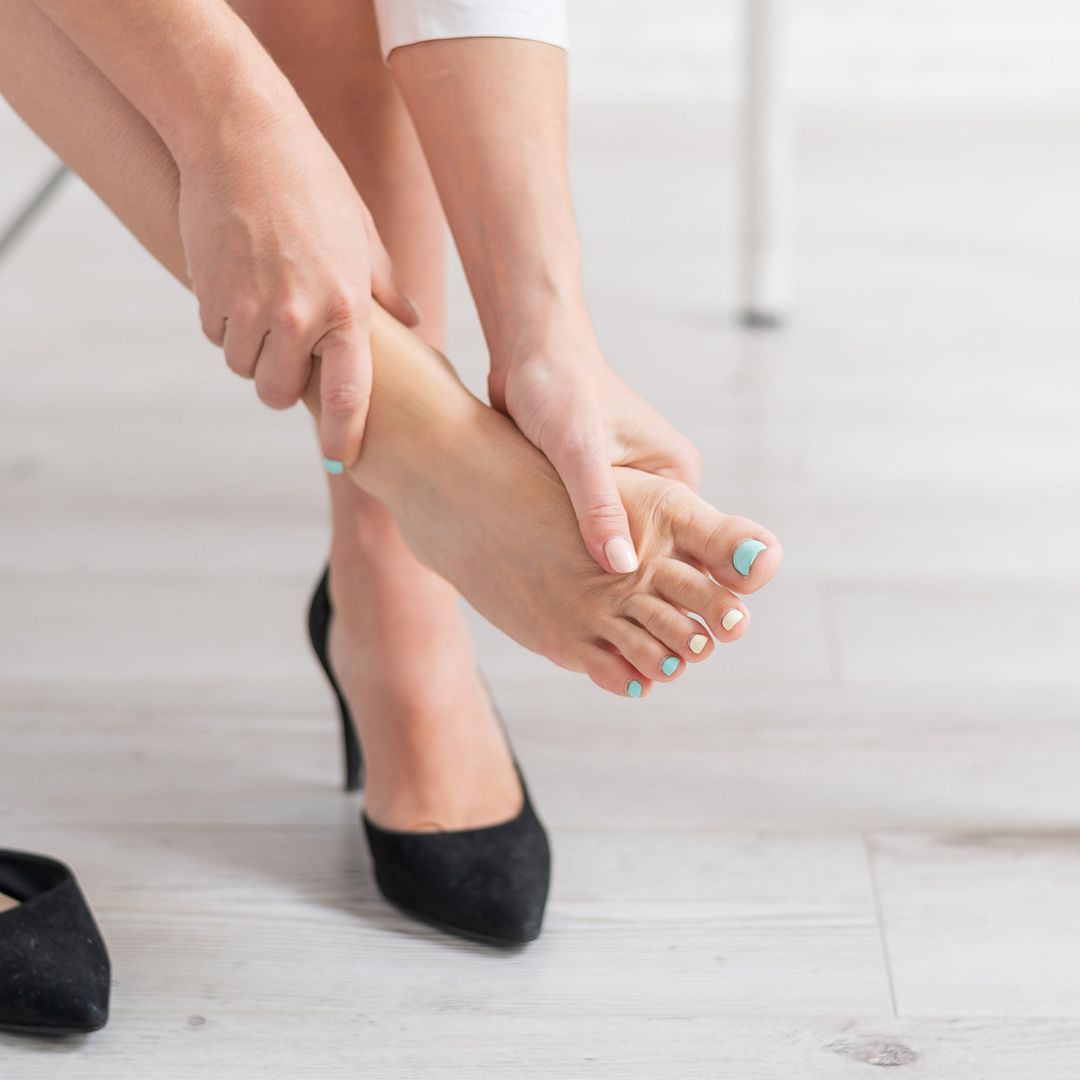Menopause can be seriously taxing both physically and mentally. To that end, it can have a significant impact on performance in the workplace, while studies have shown that 900,000 women in the UK felt they had no choice but to quit their jobs because of it.
SEE: 36 symptoms of menopause and how to treat them – expert advice
HELLO! have joined forces with charity Wellbeing of Women to call on employers to sign the Menopause Workplace Pledge, which encourages companies to support employees while going through the menopause, but what are our legal rights around the condition in the workplace as it stands? Is there such thing as menopause leave? And what, if any, are the existing legal workplace menopause policies? We caught up with Neha Thethi, head of employment at Lime Solicitors to find out more.
WATCH: Sophie Wessex speaks out in favour of menopause campaign
Is menopause leave a right of employees?
Sadly not right now. Neha explains: "'Menopause leave' is not an automatic right for employees, in the same way as sick leave. This is because the menopause and perimenopause are not specifically protected under the Equality Act 2010. However, it is important to note that there are certain pieces of legislation to protect employees. For example, if a worker is treated unfairly because of the menopause or perimenopause, this could amount to discrimination because of their sex; a disability; and/or their age."
RELATED: Penny Lancaster discusses 'horrific' menopause symptoms in candid interview
Here are some examples of situations in the workplace that might apply to each act.
Sex discrimination
"Unfair treatment of a worker because of their sex could lead to a sex discrimination claim, for example if an employer treats a woman's menopause or perimenopause symptoms less seriously than it would a male worker's health condition when considering a drop in job performance."
Disability discrimination
"A disability is a physical or mental impairment that has a substantial and long-term adverse effect on a person’s ability to carry out normal day-to-day activities. This is a broad definition and a worker's menopause or perimenopause could potentially be regarded as a disability. If a worker has a disability, an employer must consider making changes to reduce or remove any disadvantages the worker experiences because of it (i.e. reasonable adjustments)."
Age discrimination
"Workers are protected against unfair treatment because of their age. This may include unfair treatment of workers because they are going through the perimenopause or menopause."
Will menopause leave become an official policy?
"Existing legislation protects people from discrimination based on sex, age and disability, but several calls have been made for further measures, including a workplace menopause policy," Neha tells us. "In August 2021 an announcement by Caroline Nokes, Chair of the Women and Equalities Committee, confirmed that the issue of women’s rights with regards to the menopause are high on the agenda. Ms Nokes confirmed that she would not rule out recommending changing equality laws to provide better protection for menopausal women."
READ: Davina McCall shares glowing make-up free selfie with important menopause message
How much absence are you allowed for menopause?
Neha explains: "As the menopause is long term and affects everyone differently, managing absence from work should be handled sensitively. It is a good idea for employers to talk to staff about any reasonable adjustments that could help them do their job. Staff should also be given a reasonable amount of time to adjust to any changes made. When someone is off sick because of the menopause, the employer should record these absences separately from other absences. This is because there may be times when it could be unfair or discriminatory to measure menopause-related absence as part of the person's overall attendance record.
"It is also good practice for an employer to allow staff to go to medical appointments related to the menopause. There is no law for this type of time off, but employees and workers might have a right to paid or unpaid time off written in their employment contracts."
MORE: Penny Lancaster breaks down as she details menopause and husband Rod Stewart's role - watch
Do you have to prove you're going through the menopause? If so, how?
"In many workplaces the menopause is still a taboo," Neha says. "Causing many women to suffer in silence rather than disclose to their employer. Therefore, employers may wish to raise awareness among staff of what the menopause is and how it can affect women and their work.
"Due to the current lack of guidance and legislation, employees may wish to make the employer aware of their symptoms. The impact of these symptoms on a worker's self-confidence, mental health and relationships with others will clearly have an impact not only on their life outside work but also their working life, particularly given the stresses and strains of a busy workplace. As with other sickness, a doctor’s note may be required for prolonged periods of absence."
What workplace policies exist regarding the menopause?
"The Health and Safety at Work Act 1974 says an employer must, where reasonably practical, ensure health, safety and welfare at work," Neha begins. "An employer must minimise, reduce or where possible remove workplace health and safety risks for workers. This will involve carrying out a health and safety risk assessment with a view to ensuring menopausal symptoms are not made worse by the workplace and/or its work practices, and making changes to help a worker manage their symptoms when doing their job."
READ: Meg Mathews opens up about her crippling menopause struggle
How has menopause employment law changed over the years? In what way has there been progress?
"There have been a number of key developments in the recent years," says Neha. "The current legislation has been cited in a number of tribunal cases that have won concerning menopause, including Merchant v BT (2021) where the Claimant was dismissed following a final warning for poor performance while she was experiencing difficult menopausal symptoms. Davies v Scottish Courts and Tribunals Service (2018) confirmed that menopausal symptoms can qualify as the protected characteristic of a “disability” under the Equality Act 2010. A v Bonmarche Ltd (2019) resulted in successful claims of age discrimination and sex discrimination.
"It is worth noting that some cases have resulted in financial awards against employers and were widely reported, underlining the importance of taking a supportive approach when managing women who are going through the menopause or perimenopause.
"On 23 July 2021, the Women and Equalities Committee launched a new inquiry into the impact of the menopause in the workplace; seeking to understand whether current legislation goes far enough to support women experiencing the menopause. This includes whether or not the current legislation sufficiently protects employees from discrimination in the workplace associated with the menopause and what more can the UK Government do to address this issue.
"It has not ruled out the possibility of recommending that the law be changed to make menopause a standalone protected characteristic and whether employers should be compelled to put in place workplace menopause policies.
"Carolyn Harris MP called for a 'menopause revolution' and her private members bill on the menopause will be debated in UK Parliament on 29 October 2021. ACAS have also issued guidance for employers to help manage the impact of menopause at work. This is clearly a developing area and therefore everyone is advised to keep up to date with ACAS and other relevant guidance, including the developing body of case law."
Like this story? Sign up to our newsletter to get other stories like this delivered straight to your inbox.









